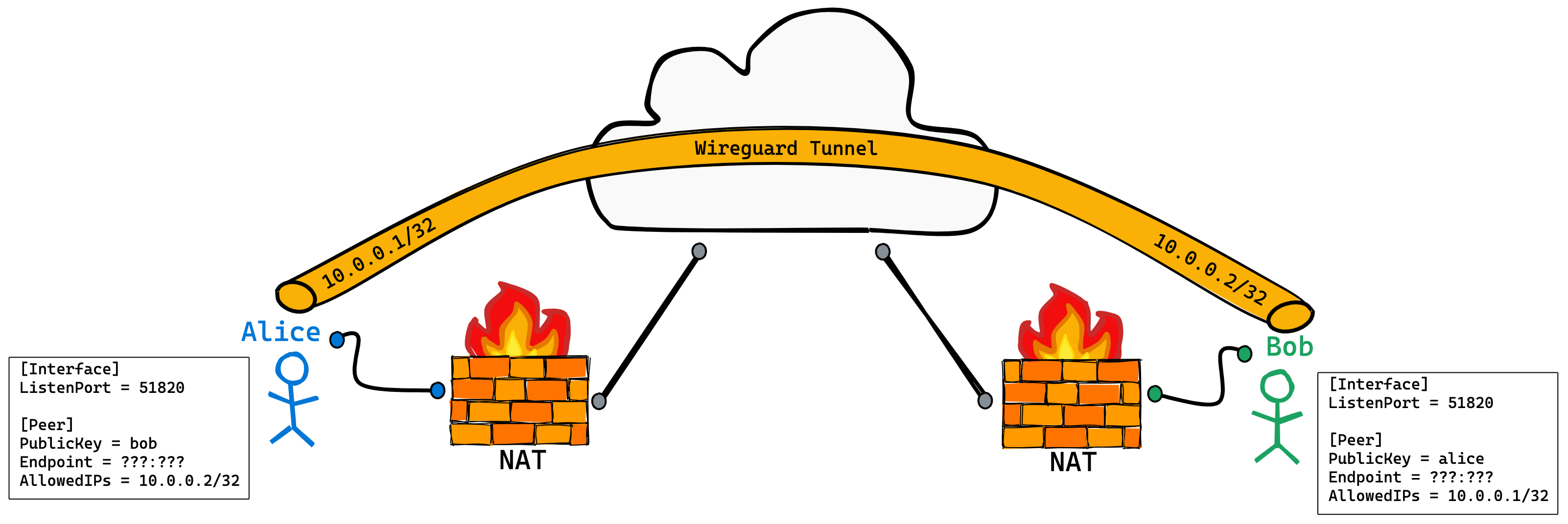Featured
Table of Contents
What Is Wireguard Vpn Protocol
Among the most popular VPN services,, was the very first of the bigger VPNs to offer Wire, Guard's protocol. Nord, VPN thought so extremely of Wire, Guard that it took things further and modified the open-source offering to develop Nord, Lynx, its tailored protocol that uses one of the fastest VPN connections.
When comparing Open, VPN and Wire, Guard, it is essential to think about the strength of encryption however also speed, and flexibility in terms of how easily it can be incorporated into different networks. is an open source protocol that was developed in 2001, and despite its age most encryption tools support it, therefore it has ended up being the most popular of all VPN options on the market.

These are all protocols that establish an encrypted tunnel in between an individual's computer system and a resource that they are connected to, like an application or a server somewhere. This keeps the information being transferred in between them private. How do I setup Wire, Guard? Establishing a Wire, Guard application is easy.
What Is Wireguard? Simple Explanation Of A New(er) Vpn ...

This includes typing in the IP address, port number and other information and after that activating the client. What's much better: IPSec vs Wire, Guard? Everything depends on the network environment you are using. There are lots of reports that Wire, Guard uses the same level of file encryption while making connections much faster, but some business might prefer IPSec due to the type of cryptography algorithms it supports.
There are numerous free VPNs that support Wire, Guard, and it is likewise consisted of by default in the Linux kernel, so those who are proficient at shows can develop these kinds of encrypted connections merely by typing in the command line. Wire, Guard is likewise supported by subscription-based security items.

After that all connections will be tunneled utilizing Wire, Guard instead of alternative procedures. Is Wire, Guard safe to utilize? Though it is fairly new on the scene, Wire, Guard's tiny codebase has been completely evaluated and audited, and it's addition on the Linux kernel is an enormous vote of confidence in its security.
Unifi Gateway - Wireguard Vpn Server

A lot of VPN options that exist today were designed a long time earlier, so they're quite slow and are extremely crafted. Get in Wire, Guard, a task that puts security and simpleness first. Security researcher and kernel designer Jason Donenfeld understood for Wire, Guard in 2017 while in need of a sneaky traffic tunneling service that could be utilized during penetration testing engagements.
So, he set out to produce an entirely new VPN protocol and implementation that would avoid a few of the style choices that changed other tunneling innovations into monster tasks with huge code bases and many knobs and switches. For one, the Wire, Guard procedure eliminates cryptographic agility-- the idea of offering choices amongst various encryption, key exchange and hashing algorithms-- as this has resulted in insecure releases with other technologies.
The protocol is likewise stealthy, as it does not react to any packets from peers it does not acknowledge, so a network scan will not reveal that Wire, Guard is operating on a machine. what is wireguard protocol and how does it work?. The connection in between peers, which can act as both clients and servers at the exact same time, go silent when there's no exchange of information.
What Is Wireguard Vpn Protocol
The main Wire, Guard implementation is for Linux and comes in the type of a kernel module. The code is meant to be easily auditable, with Donenfeld stating it can be read in an afternoon. Compared to Open, VPN which has over 100,000 lines of code and depends on Open, SSL-- another big codebase-- the Wire, Guard kernel module has around 4,000 lines of code and the crypto code is constructed into it.
Aside from some community-supported Android firmware projects that incorporated the Wire, Guard kernel module, the non-Linux Wire, Guard implementations run in userspace and do not benefit from the very same performance as the kernel execution. That stated, they still handle to match or outshine Open, VPN in most cases. what is wireguard protocol and how does it work?. The Wire, Guard kernel module is offered in the package repositories of all significant Linux circulations and even some specialized ones.

6, released on March 29, 2020, Wire, Guard is one of the technologies that are developed in by default. This is also considered Wire, Guard's first stable release, or version 1.
Most Popular Vpn Connection Protocols, Explained
Donenfeld accepted the compromise and was mostly satisfied with the outcome."It's not called 'Zinc' any more, and a few of the design decisions I liked aren't there, but I think the lion's share of what we were after is there, and a few other pieces must be possible to upstream one at a time," he said in a message to the Wire, Guard task's newsletter at the time.
From then on, things moved relatively quickly, with numerous evaluations, bug fixes and changes in the course of a few months before the stable release. Windows doesn't provide a native TUN virtual gadget and while some motorists exist to accomplish this from projects such as Open, VPN or Soft, Ether, they were written a long time ago and have numerous issues.
Even prior to reaching a stable version Wire, Guard was currently being utilized in production. Some commercial VPN provider use Wire, Guard servers and there are continuous efforts to develop mesh networking tools around it. It is not yet "enterprise prepared" and it's uncertain if it will ever be because its developers hesitate to add brand-new features that are only beneficial to a subset of users or cover edge cases because that's how other tasks became extremely complex.
What Is Wireguard? (And Why Your Vpn Experience Isn't ...
For example, enterprises require to release and set up brand-new software on a a great deal of computers in an automatic manner, but the circulation of public secrets amongst peers and key management are not covered by the Wire, Guard job itself and will need to be executed as a different tool.
Wire, Guard, that makes it more available than some proprietary innovations. Its open source likewise makes it a lot more friendly when setting it up on gadgets that do not support Wire, Guard natively. Wire, Guard has many. Being the most recent VPN protocol doesn't come at a rate.
Wire, Guard needs to be an alternative without any shadows of doubt. Wire, Guard works by on the VPN servers so that the information packages wouldn't be blended among its users. In concept, this can severely threaten the user's personal privacy as this is one of the essential vulnerabilities that a trespasser might target.
Latest Posts
5 Best Vpns For Mobile Data To Protect Your Privacy
Top Mobile Vpns For The Enterprise - Cso Online
Cisco Mobile Vpn